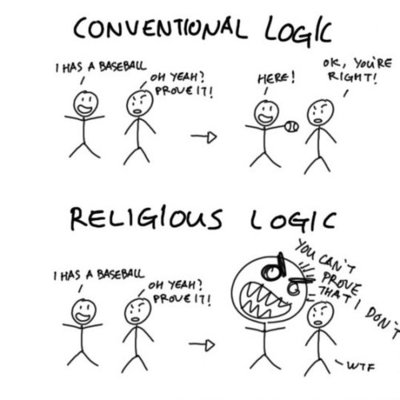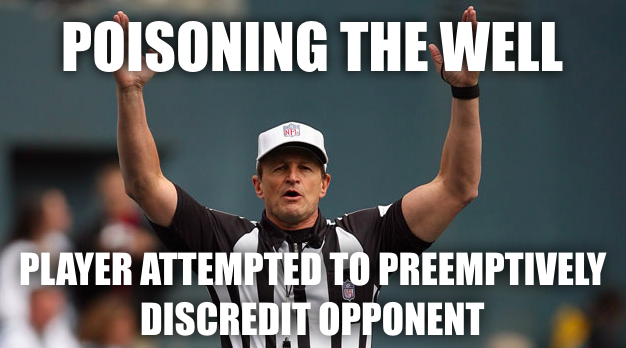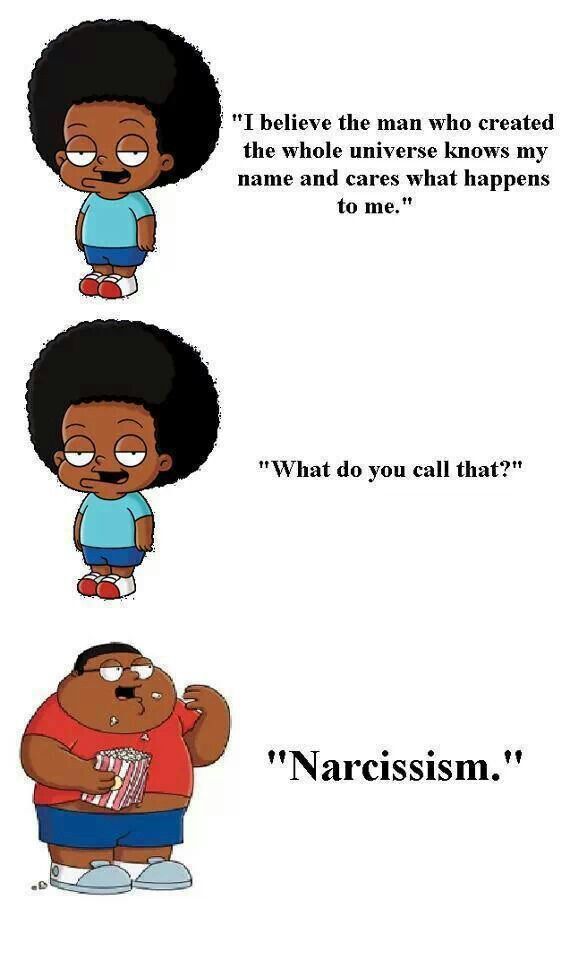The Allegory of the Olive Trees
Jacob 5–7
LDS manual: here
Purpose
To show that religious discourse slanders Jewish people and unbelievers alike.
Reading
My relationship with olives is complicated.
The first time I tried olives, it was at a family gathering. All the other kids had stuck pitted olives on all of their fingers. It looked like fun, so I got two handfuls. Then I ate one of the olives. It did not agree with my young taste buds. So now I had olives on all my fingers (but one), and no desire to eat any of them. What to do? Flicking them at family members was, in retrospect, not a great idea, and brought swift remonstration. History does not record what happened to the olives.
I once lived at a place that had an olive tree. It was a fairly spindly affair, but it made olives with annual regularity. I didn’t know what to do with them. I heard that you could pick them and soak them in brine for a long time, and they would become edible. But if even one of the olives had a bad spot, you’d have a whole jar of bad olives. It seemed like an awful lot of work for something that, as I say, you wouldn’t want on your fingers. The boys used them for olive fights. Olives can sting.
Anyway, this one time I got home, and there was a rotund Italian lady up in the tree, picking olives. Wearing an apron, a house dress, the whole bit. I don’t know how she got up there because it really wasn’t a big tree, and it didn’t look like it could support her considerable bulk. She must have been really keen to get at those olives. Apparently she’d asked my housemate if she could harvest them, and my housemate said yes. The same house had a grape arbor, and the grapes were nice sometimes, but mostly the rats would eat them. So I had rats scrambling around in the arbor and old Italian women up in the olive trees. I didn’t know what to do about it all. I mean, the rats you could poison.
I always pick olives off of pizzas.
I was going somewhere with this. Oh, yeah.
I hate olives. Olives are bullshit.
And so is this reading. The centrepiece of this lesson is an allegory by a prophet named (as the LDS manual says) “Zenos, a Hebrew prophet mentioned several times in the Book of Mormon”.
Ask: If you had to make up some kind of name for a fictional prophet, and you weren’t very good at it, doesn’t “Zenos” totally sound like something you would make up? No wonder Joseph Smith eventually grabbed a map in exasperation, and starting pulling names from it. But more on this in another lesson.
Main ideas for this lesson
God grows, scatters Israel
So here’s the allegory. Israel is an olive tree.
Jacob 5:3 For behold, thus saith the Lord, I will liken thee, O house of Israel, like unto a tame olive-tree, which a man took and nourished in his vineyard; and it grew, and waxed old, and began to decay.
Can I just stop here and pose a question. This is about olives. But it keeps saying that this takes place in a vineyard.
I’m no viticulturalist, but I had the idea that a vineyard is where you grow grapes, not olives. Isn’t that right? I don’t want to make a big deal out of this if it’s nothing, but I would have said you grow olives in a grove.
“olive grove”: About 618,000 raw Google hits
“olive vineyard”: About 7,520 raw Google hits
I could be wrong, and this usage could have changed from Joseph Smith’s time, but this sounds like a slip-up you’d make if you’d never had anything to do with olives or grapes in your life.
Anyway, the master of the “vineyard” has a severely misbehaving olive tree (symbolic of Israel). By “misbehaving”, I don’t mean that it started growing grapes, although that would be understandable if you’re in a vineyard, FFS. No, this tree is rotting away, symbolic of Jewish people who didn’t install the upgrade to Judaism 2.0: Christianity.
Ask: If you have broken free of religion, would you describe your current state as “decay”?
Why do believers characterise unbelievers in terms of dwindling, perishing, or decaying?
Good thing Jacob didn’t say it wasn’t an orchard; his olive tree would start growing peaches or something.
I clearly need to get over this.
UPDATE: Thanks to redditor LecturesOnDoubt who posted an answer:
Great post although I will give the answer I always heard for the “orchard/vineyard” mix up. The Hebrew word for vineyard (kerem) is the same as the word for orchard. The word karmel means both as well. Hugh Nibley suggested this justifies Joseph’s mishap, which I agree is a clever point. Although I also think it’s just a coincidence. A good answer for one error out of thousands is not only possible, but very probable. Still doesn’t mean it’s true.
That is interesting, and I agree — a clever explanation. Then the problem is this: God is a bad translator who picks the wrong words.
<eyes the clock> I want to get into a discussion of loose v. tight translation, but I think I’m going to have to do that in a future lesson. Coming up soon!
Thanks, LecturesOnDoubt.
Jacob 5:4 And it came to pass that the master of the vineyard went forth, and he saw that his olive-tree began to decay; and he said: I will prune it, and dig about it, and nourish it, that perhaps it may shoot forth young and tender branches, and it perish not.
5:5 And it came to pass that he pruned it, and digged about it, and nourished it according to his word.
5:6 And it came to pass that after many days it began to put forth somewhat a little, young and tender branches; but behold, the main top thereof began to perish.
5:7 And it came to pass that the master of the vineyard saw it, and he said unto his servant: It grieveth me that I should lose this tree; wherefore, go and pluck the branches from a wild olive-tree, and bring them hither unto me; and we will pluck off those main branches which are beginning to wither away, and we will cast them into the fire that they may be burned.
5:8 And behold, saith the Lord of the vineyard, I take away many of these young and tender branches, and I will graft them whithersoever I will; and it mattereth not that if it so be that the root of this tree will perish, I may preserve the fruit thereof unto myself; wherefore, I will take these young and tender branches, and I will graft them whithersoever I will.
Summary: The man with the olive vineyard doesn’t like the fact that his olives don’t believe in him, so he plans to burn the bad branches, and bring in other branches instead. Much digging, dunging, and cumbering ensues.
Stage 1: The olive tree (Israel) is decaying, so the Vineyard Master scatters its branches everywhere (which as we know, is the best way to fix a sick tree). This is a metaphor for how the Jewish people were driven and scattered for centuries. The Master also grafts in wild olive branches (lets Gentiles join the church).
Stage 2: Results are mixed. The tree is doing well, but some of the remote branches are not.
Stage 3: Now every tree is doing terribly. The fruit is still corrupt, and God is going to burn the whole plantation down and give it up as a bad job.
Jacob 5:49 And it came to pass that the Lord of the vineyard said unto the servant: Let us go to and hew down the trees of the vineyard and cast them into the fire, that they shall not cumber the ground of my vineyard, for I have done all. What could I have done more for my vineyard?
5:50 But, behold, the servant said unto the Lord of the vineyard: Spare it a little longer.
5:51 And the Lord said: Yea, I will spare it a little longer, for it grieveth me that I should lose the trees of my vineyard.
According to the LDS lesson manual,
What do the many kinds of corrupt fruit symbolize? (Universal apostasy.)
Let’s make a note of that.
Stage 4: Finally, many verses later, the master of the vineyard manages to get some decent olives — like he had at the beginning of the story.
Jacob 5:75 And it came to pass that when the Lord of the vineyard saw that his fruit was good, and that his vineyard was no more corrupt, he called up his servants, and said unto them: Behold, for this last time have we nourished my vineyard; and thou beholdest that I have done according to my will; and I have preserved the natural fruit, that it is good, even like as it was in the beginning. And blessed art thou; for because ye have been diligent in laboring with me in my vineyard, and have kept my commandments, and have brought unto me again the natural fruit, that my vineyard is no more corrupted, and the bad is cast away, behold ye shall have joy with me because of the fruit of my vineyard.
Let’s say this allegory is all true, and this is God’s big chance to get his message out there, and establish his church for the salvation of all humankind. So he starts with a group of chosen people (who need to kill everyone else in their area), but he explains his plan to them so poorly that they completely fail to recognise Part Two of the plan when it comes along, in the form of Jesus.
Jesus, for his part, appears to a small group of humans, but pretty much allows them to write down whatever they want about him decades later, contradictions and all. He never says, “Mark, Luke, write this down, because I need you to get this absolutely right.”
Then, hundreds of years later, God allows his organisation to fall into ruin and apostasy. He restores it through a tiny idiosyncratic organisation headed by a pedophile with a criminal record. This organisation forms a tiny — and currently shrinking — percentage of the population.
What does it say about God that he has to go through all this rigamarole for so little good, and can’t seem to think of a way to overcome his own problems in a way that doesn’t involve the loss of generations of people?
Ask: What can we take from Zenos’s allegory?
If you are a Mormon, you must believe that the Jewish diaspora, including the persecutions endured by the Jewish people
- are ordained by the Abrahamic god, and are therefore just
- happened because the Jewish people didn’t believe in Jesus
which is especially unjust when the scriptural accounts for Jesus’ actions are ambiguous and contradictory, and the evidence for Jesus’ divinity is non-existent.
I want to thank redditor scrotumbrau for putting this so clearly:
As a parent, one of the most immoral acts I can think of is saving one child over another based on their obedience to me.
Threatens unbelievers
Jacob isn’t done. He continues his old-school threats against unbelievers.
Jacob 6:7 For behold, after ye have been nourished by the good word of God all the day long, will ye bring forth evil fruit, that ye must be hewn down and cast into the fire?
Jacob 6:10 And according to the power of justice, for justice cannot be denied, ye must go away into that lake of fire and brimstone, whose flames are unquenchable, and whose smoke ascendeth up forever and ever, which lake of fire and brimstone is endless torment.
Ask: Is it just for someone to be tormented/punished/isolated for eternity, for sins of finite duration?
My response to people like Jacob is: I don’t like being threatened.
And their answer is always the same: I’m not threatening you; I’m just telling you what my invisible friend is going to do to you if you don’t admit I’m right and worship him.
Sherem
One of the evidences that the Book of Mormon is a recent — not an ancient — document is its views on atheists.
You never see any atheist characters in the Bible. Back then, they were kind of hard to find. Yet in the Book of Mormon, we have three atheists/agnostics. It’s as though when the book was being written, people were starting to take a skeptical view of religious horse crap. And so whoever wrote the Book of Mormon felt the need to address this by staging confrontations with them. But the BoM doesn’t do this honestly. It turns its atheist characters into straw men — either stupid or dishonest — who don’t say the things that atheists say,and who are pretty much unlike actual atheists. And then it gets God to end the argument by doing violence to them, which is also something that never happens in real life.
We’re going to take a look at the debating tactics encouraged by the Book of Mormon.
Jacob 7:1 And now it came to pass after some years had passed away, there came a man among the people of Nephi, whose name was Sherem.
This seems odd. A guy just appears out of nowhere? This is only one generation removed from Nephi, but Jacob doesn’t mention where Sherem comes from, or who he’s related to. Wouldn’t everybody in the group still be known to everyone? Why doesn’t anyone say, “Hey, aren’t you Joseph’s kid?”
Apologists cover this by surmising that Lehi’s family quickly ran into other people on the American continent — Jaredite or otherwise — and joined up with them. But no Book-of-Mormon writer ever mentions the existence of other people. It would have been simple for Jacob to have written one verse, saying, “And it came to pass that we did discover an exceeding multitude of people, and we did unite ourselves unto them.” One verse! That’s all it would have taken. But this never happens.
Jacob 7:2 And it came to pass that he began to preach among the people, and to declare unto them that there should be no Christ. And he preached many things which were flattering unto the people; and this he did that he might overthrow the doctrine of Christ.
7:3 And he labored diligently that he might lead away the hearts of the people, insomuch that he did lead away many hearts; and he knowing that I, Jacob, had faith in Christ who should come, he sought much opportunity that he might come unto me.
Hey, that’s great — he’s engaging with someone who disagrees with him. That’s a good thing to do.
Jacob 7:4 And he was learned, that he had a perfect knowledge of the language of the people; wherefore, he could use much flattery, and much power of speech, according to the power of the devil.
Ask: In what way does the LDS Church flatter people, or appeal to their sense of importance?
Have you ever heard any of the following?
- You have been held in reserve as a chosen generation
- The creator of the universe knows your name
- You are a child of God
- You can become a god and have your own planet(s)
- The work and the glory of God is to bring to pass your own personal immortality and eternal life
- Your moral system was given to you by the creator of the universe
The entire “plan of salvation” is one gigantic ego stroke.
So much so, that they have to bring you down by telling you you’re less than the dust of the earth. But more on that later.
Jacob 7:5 And he had hope to shake me from the faith, notwithstanding the many revelations and the many things which I had seen concerning these things; for I truly had seen angels, and they had ministered unto me. And also, I had heard the voice of the Lord speaking unto me in very word, from time to time; wherefore, I could not be shaken.
Oh, good for him.
Isn’t it funny how angels only appear to people who already believe in them? You know, if angels were appearing to people — even disbelievers — routinely, it would shake up this whole atheist thing, and make it a lot less plausible. I’m just saying.
Jacob 7:6 And it came to pass that he came unto me, and on this wise did he speak unto me, saying: Brother Jacob, I have sought much opportunity that I might speak unto you; for I have heard and also know that thou goest about much, preaching that which ye call the gospel, or the doctrine of Christ.
7:7 And ye have led away much of this people that they pervert the right way of God, and keep not the law of Moses which is the right way; and convert the law of Moses into the worship of a being which ye say shall come many hundred years hence. And now behold, I, Sherem, declare unto you that this is blasphemy; for no man knoweth of such things; for he cannot tell of things to come. And after this manner did Sherem contend against me.
It’s hard to know what’s going to happen. As Niels Bohr said,
But I do know a good way to predict the future: use the scientific method. By observing what’s happened in the past, we can make testable hypotheses that do predict what’s going to happen in the future.
Jacob 7:8 But behold, the Lord God poured in his Spirit into my soul, insomuch that I did confound him in all his words.
Care to elaborate?
Jacob: “I totally put him in his place with all my great arguments. Yep. Shut him down, I can tell you.”
It’s like that scene in a movie where someone gives a great speech, but the script writers don’t actually write the speech; they just do a montage of the audience nodding thoughtfully.
If Jacob really burned Sherem with so many zingers, why didn’t he write them down? I would have! In fact, I already do that in Facebook posts, and then I read them all to my wife!
Come on, Jacob, you owe us something.
Jacob 7:9 And I said unto him: Deniest thou the Christ who shall come? And he said: If there should be a Christ, I would not deny him; but I know that there is no Christ, neither has been, nor ever will be.
This is an oversimplification; I think most atheists today wouldn’t say they could know that.
Jacob 7:10 And I said unto him: Believest thou the scriptures? And he said, Yea.
7:11 And I said unto him: Then ye do not understand them; for they truly testify of Christ. Behold, I say unto you that none of the prophets have written, nor prophesied, save they have spoken concerning this Christ.
This is revisionism. Certainly Christians have been good at plowing through the Old Testament looking for anything that might possibly apply to Jesus, but this could be done retroactively for Elvis (Presley or Costello, take your pick).
If you disagree, consider that a guy in Canada thinks that Morrissey foretold the death of Princess Diana, through song lyrics. He’s written pages and pages of analysis. I’m not kidding.
When you have a text in front of you, it’s easy to draw imaginary connections that match nothing but what’s in your head.
Jacob 7:12 And this is not all — it has been made manifest unto me, for I have heard and seen; and it also has been made manifest unto me by the power of the Holy Ghost; wherefore, I know if there should be no atonement made all mankind must be lost.
And here, Jacob falls back on testimony. Sherem should believe it’s true because the Holy Ghost told Jacob. Sorry, Jacob, but your special feels are not publicly verifiable evidence. Bearing testimony is a tactic for shutting down the conversation. Can’t argue with that, as they say.
Jacob 7:13 And it came to pass that he said unto me: Show me a sign by this power of the Holy Ghost, in the which ye know so much.
Okay, so now Sherem has touched the third rail. He’s asked Jacob for evidence for his claims.
Apparently you are never supposed to do this, even though this is how we establish facts in literally every other area of epistemology.

So then God puts the Big Hurt on Sherem. Seem like a bit of overkill, doesn’t it? Really, all that was needed was some kind of evidence, or a convincing explanation. Not to kill him, which after all is not really evidence of anything. People die all the time. Anyway.
Jacob 7:14 And I said unto him: What am I that I should tempt God to show unto thee a sign in the thing which thou knowest to be true? Yet thou wilt deny it, because thou art of the devil. Nevertheless, not my will be done; but if God shall smite thee, let that be a sign unto thee that he has power, both in heaven and in earth; and also, that Christ shall come. And thy will, O Lord, be done, and not mine.
7:15 And it came to pass that when I, Jacob, had spoken these words, the power of the Lord came upon him, insomuch that he fell to the earth. And it came to pass that he was nourished for the space of many days.
7:16 And it came to pass that he said unto the people: Gather together on the morrow, for I shall die; wherefore, I desire to speak unto the people before I shall die.
7:17 And it came to pass that on the morrow the multitude were gathered together; and he spake plainly unto them and denied the things which he had taught them, and confessed the Christ, and the power of the Holy Ghost, and the ministering of angels.
7:18 And he spake plainly unto them, that he had been deceived by the power of the devil. And he spake of hell, and of eternity, and of eternal punishment.
7:19 And he said: I fear lest I have committed the unpardonable sin, for I have lied unto God; for I denied the Christ, and said that I believed the scriptures; and they truly testify of him. And because I have thus lied unto God I greatly fear lest my case shall be awful; but I confess unto God.
7:20 And it came to pass that when he had said these words he could say no more, and he gave up the ghost.
Ever notice how all the really interesting things happened in the distant past? I deny the Christ all the time, and I’m still walking around like God’s imaginary or something.
Ask: What do we learn from the story of Sherem?
1. Believers should just bear their testimonies to critics, and pray for God to strike them down.
and
2. Doubters secretly do know it’s all true, but they’re being deceived by Satan.
Whoops, there’s a flag down on the play.

Well, I’m going to be sad to see Sherem go, even though he was a bit of a Judaism apologist. It’s just that the Book of Mormon villains are the most fun. We’ll see the same pattern in our other two villains (Nehor and Korihor): the Book of Mormon writer can’t deal with the arguments of unbelievers honestly; he has to present outrageous caricatures of their views, and subject them to dismal ends.
Additional lesson ideas
Adieu
Jacob signs off with these words:
Jacob 7:27 And I, Jacob, saw that I must soon go down to my grave; wherefore, I said unto my son Enos: Take these plates. And I told him the things which my brother Nephi had commanded me, and he promised obedience unto the commands. And I make an end of my writing upon these plates, which writing has been small; and to the reader I bid farewell, hoping that many of my brethren may read my words. Brethren, adieu.
People have made much of the word adieu here, but is it really a big deal? Yes, the word is French, which didn’t exist in this time period — and all the other words are in English, which also didn’t exist in this time period.
Even though the French word adieu seems odd in this context, I’m putting this one down as “not a big deal”. Although it does mean God’s a bit of a crap translator, along with everything else he’s not great at.




15 April 2016 at 12:46 am
Always an interesting read. 🙂 I like Jacob 5 for what I think are the author’s intended insights into the love and grace of God. http://www.churchistrue.com/blog/allegory-of-the-olive-tree/